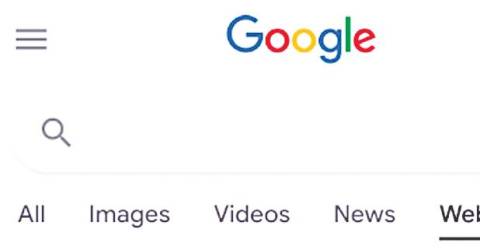GOOGLE’S new “web” search is the company’s best improvement for those who often use its search engine. The feature – or tab – is being slowly rolled out globally, but it is set to change how web searches work by, rather ironically, taking users back in time.
“We have launched a new ‘Web’ filter that shows only text-based links, just like you might filter to show other types of results, such as images or videos,” Google announced on X (formerly Twitter) recently.
On paper, it does not sound like anything at all. However, what it does in practice is a rather big deal.
Over the last few years, standard web searches through Google’s engine will bombard users with extreme bloat ranging from sponsored shopping results, sponsored posts, sponsored pages and pages from SEO factories.
With this new feature, after users first make a search query and the aforementioned bloated pages appear, clicking on the Web tab filters out all of the eyesore, leaving links that people will be more interested in. It is how Google Search used to be 10 years ago.
The domino effect of the filter is that by removing the sponsored trash, all the links from normal sites that were buried are effectively brought further up. The Verge experimented with the new Web tab and they discovered previously buried links appearing in the first page of search results.
However, there is a downside, which is the Web tab is an opt-in that has to be manually selected. Google even warns that the tab may not even appear in the selection at the top of the page, and users would need to click “More” to find the Web tab.
Google has explained that the feature’s rollout will take two days starting from the day of the announcement.
At the time of online publication, the Web filter has been rolled out in Malaysia and works rather well. Unfortunately, it is still a manual opt-in, where the Web tab has to looked for and clicked. Google should consider making it the default setting when users search through its search engine.

